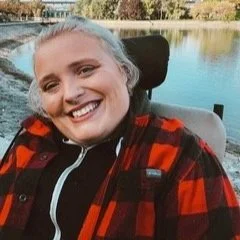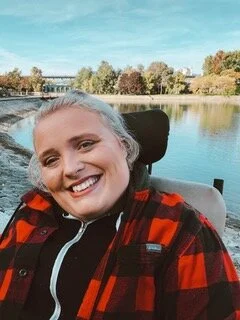In November 2021, we announced that our Jooay App research project had teamed up with the Earth Rangers organization to launch Project 2050: Climate-friendly habits to change the world!
Jooay and Earth Rangers reached out to CHILD-BRIGHT’s National Youth Advisory Panel (NYAP), which offers an innovative consultation service to Canadian researchers working on childhood disability research projects, to help ensure Project 2050 is accessible to, and inclusive of, children with disabilities. NYAP member Gillian Backlin worked with the team to provide an accessibility review of the Project 2050 website.
A national movement powered by Earth Rangers in partnership with Jooay, Project 2050 empowers children with the knowledge and skills needed to tackle climate change. It teaches children and youth that our habits can have a big impact on the planet, and that by working together, we can build a more climate-resilient future. It was therefore important to the project team that its website be accessible to all children and youth, including those with disabilities.
Gillian, who has completed a previous NYAP consultation, was a natural fit for this particular project. “I’m trained in technical writing and therefore have knowledge in information architecture and how things might make more sense to the end user,” she explained.
The nature of each NYAP consultation can vary depending on specific research project needs. For Project 2050, Gillian met with the team via Zoom, where they requested she review a list of items on the website. She went through them with CHILD-BRIGHT Citizen Engagement Coordinator Corinne Lalonde and submitted their feedback. They then had a follow-up meeting with the project team to discuss their findings. “It was a great experience!” Gillian shared. “I felt that my feedback was valued and incorporated into the results.”
Corinne also had the opportunity to explore the website with her son: “My almost six-year-old was delighted to receive his very own official Earth Rangers card in the mail! We looked at the website and he was immediately drawn in by the challenges and rewards. He found them fun and learned a lot about healthy habits (which made his mom very happy too!).”
“It was a really great experience working with Gillian and the team on this project,” Corinne added. “It was interactive and interesting, and we felt that we were well supported throughout.”
The Jooay team couldn’t have agreed more: “Gillian provided valuable feedback on our accessibility project,” they emphasized.
“We’re partnering with Earth Rangers to advise on accessibility and the inclusion of children with disabilities in Project 2050, and to make sure that their website is accessible for children with disabilities. Project 2050 encourages kids across Canada to make climate-friendly habits part of their life,” the team wrote to us. “With her professional and lived experiences, Gillian assessed the Earth Rangers website carefully and sent us her detailed feedback.”
You (and your kids!) are invited to check out the results of the NYAP consultation by viewing the Project 2050 website.










